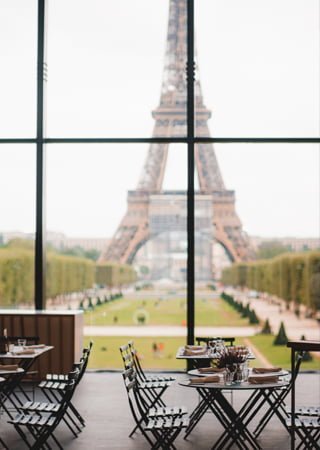Discovering the Top 10 Must-See Attractions on Your First Trip to Europe
Embarking on your first trip to Europe is like opening a book to a world brimming with awe-inspiring history, art, and landscapes. While planning an itinerary can be daunting, focusing on the continent’s top attractions ensures a rewarding and unforgettable European vacation. This guide aims to highlight the top 10 must-see sites in Europe, offering a mix of renowned landmarks and hidden gems, alongside essential travel tips for first-timers.
Whether it’s your first European journey or a return visit, these iconic attractions promise to enrich your travel experience. From marveling at architectural wonders to immersing yourself in scenic splendors, this list covers a diverse range of interests, ensuring your days in Europe are filled with wonder.
Introduction to Europe’s Top Attractions
Europe’s allure lies in its diversity – a mosaic of cultures, languages, and histories. The top attractions in Europe are not just sites to check off a list but are experiences that offer a deeper understanding and connection to the rich tapestry of European life.
The Eiffel Tower: Paris’ Iconic Symbol
Standing Tall in the City of Lights
The Eiffel Tower, an emblem of Paris, offers breathtaking city views and a striking example of architectural ingenuity. Whether admiring it from below or viewing the city from its platforms, the Eiffel Tower is a must-see for its historical significance and panoramic vistas.
A Monument of Love and Light
Beyond its structure, the tower has become a symbol of romance. Its evening light show is a mesmerizing sight, adding to the magical ambiance of Paris.
The Colosseum: A Glimpse into Ancient Rome
An Architectural Marvel
This ancient amphitheater, symbolizing the ingenuity and might of the Roman Empire, provides a window into ancient history and architecture. Walking through the Colosseum, one can almost hear the roars of gladiators and the cheers of the crowd.
Cultural Significance
Beyond its architectural wonder, the Colosseum serves as a reminder of Rome’s enduring influence on modern culture and law.
The Acropolis: Athens’ Historic Heart
Cradle of Western Civilization
Perched above the city of Athens, the Acropolis stands as a testament to Greek antiquity and architectural brilliance. The Parthenon, its most famous structure, encapsulates the ideals of classical Greece.
A Symbol of Democracy and Philosophy
Visiting the Acropolis isn’t just about admiring ancient structures; it’s about walking in the footsteps of philosophers, politicians, and artists who laid the foundations of Western thought.
Buckingham Palace: Royal Splendors in London
Witnessing Royal Traditions
As the London residence of the British monarch, Buckingham Palace is central to the United Kingdom’s royal heritage. The Changing of the Guard ceremony is a splendid display of British pageantry.
Exploring the State Rooms
While parts of the palace are open to visitors during summer, the opulent State Rooms and the palace’s facade itself are magnificent sights any time of year.
The Canals of Venice: Floating Through History
A City on the Water
Venice, a marvel of engineering and romantic charm, is renowned for its canals. A gondola ride through these waterways offers a unique perspective of this historic city, from its ornate bridges to its grand palazzos.
An Enduring Legacy
The canals tell the story of Venice’s maritime power and architectural prowess, making it an unmissable stop on any European tour.
The Sagrada Familia: Gaudi’s Masterpiece in Barcelona
An Unfinished Symphony in Stone
Antoni Gaudí’s Sagrada Familia, with its fluid shapes and rich symbolism, is more than a church – it’s a testament to the Catalan architect’s vision and creativity. The intricate façades and the stunning interior illuminated with colored light from the stained-glass windows offer an otherworldly experience.
A Testament to Faith and Art
Gaudi’s approach to the Sagrada Familia combined Gothic and curvilinear Art Nouveau forms, creating a unique piece of architecture that’s both a sacred space and a work of art.
Neuschwanstein Castle: A Fairytale Dream in Germany
Inspiration for Disney’s Castles
Tucked away in the Bavarian Alps, Neuschwanstein Castle looks like it’s straight out of a fairytale. Commissioned by Ludwig II of Bavaria, the castle’s romantic design and idyllic setting have inspired many, including Walt Disney.
A Panoramic Beauty
Apart from the castle itself, the surrounding area offers breathtaking views of the Alps, lakes, and forests, ideal for nature lovers and photographers.
The Louvre: A Treasure Trove of Art in Paris
Home to the Mona Lisa
The Louvre, originally a royal palace, houses a vast collection of art and artifacts spanning centuries of civilization. Its most famous resident, the Mona Lisa, is just one of the thousands of treasures within.
An Architectural Landmark
The museum’s iconic glass pyramid juxtaposes the historic palace with modern design, symbolizing the bridge between past and present.
The Fjords of Norway: Nature’s Spectacular Display
Majestic Natural Wonder
Norway’s fjords, with their dramatic cliffs and waterfalls, offer some of the most spectacular natural scenery in Europe. Cruises or hikes around these fjords provide breathtaking
Disclaimer: This article, “Discovering the Top 10 Must-See Attractions on Your First Trip to Europe,” is intended for general informational and inspiration purposes. We strive to ensure the accuracy and reliability of the information provided but cannot guarantee that all details will be current or applicable to every traveler at the time of reading. Travel destinations, attractions, and experiences can be subject to change due to factors such as seasonal variations, weather conditions, maintenance, and local or global events.
Additionally, travel recommendations and safety guidelines can evolve, particularly in response to COVID-19 or other health and safety concerns. We advise readers to check current travel advisories, attraction opening hours, ticket availability, and health protocols both locally and at their chosen destinations when planning their trips.
The experiences and opinions expressed in this article are those of the authors and do not necessarily reflect the views of any entities they represent. Travelers should consider their personal interests, abilities, and the nature of their travel party when planning to visit any of the locations mentioned in this guide. Always travel responsibly and respect local cultures, traditions, and the environment.

SEARCH CHEAP FLIGHTS TO EUROPE HERE
Book your European adventure now! Search here for cheapest flights to Europe, bringing the continent's rich history, stunning landscapes, and diverse cultures within easy reach. From the romantic avenues of Paris to the sun-kissed Greek isles, your European journey starts here.
